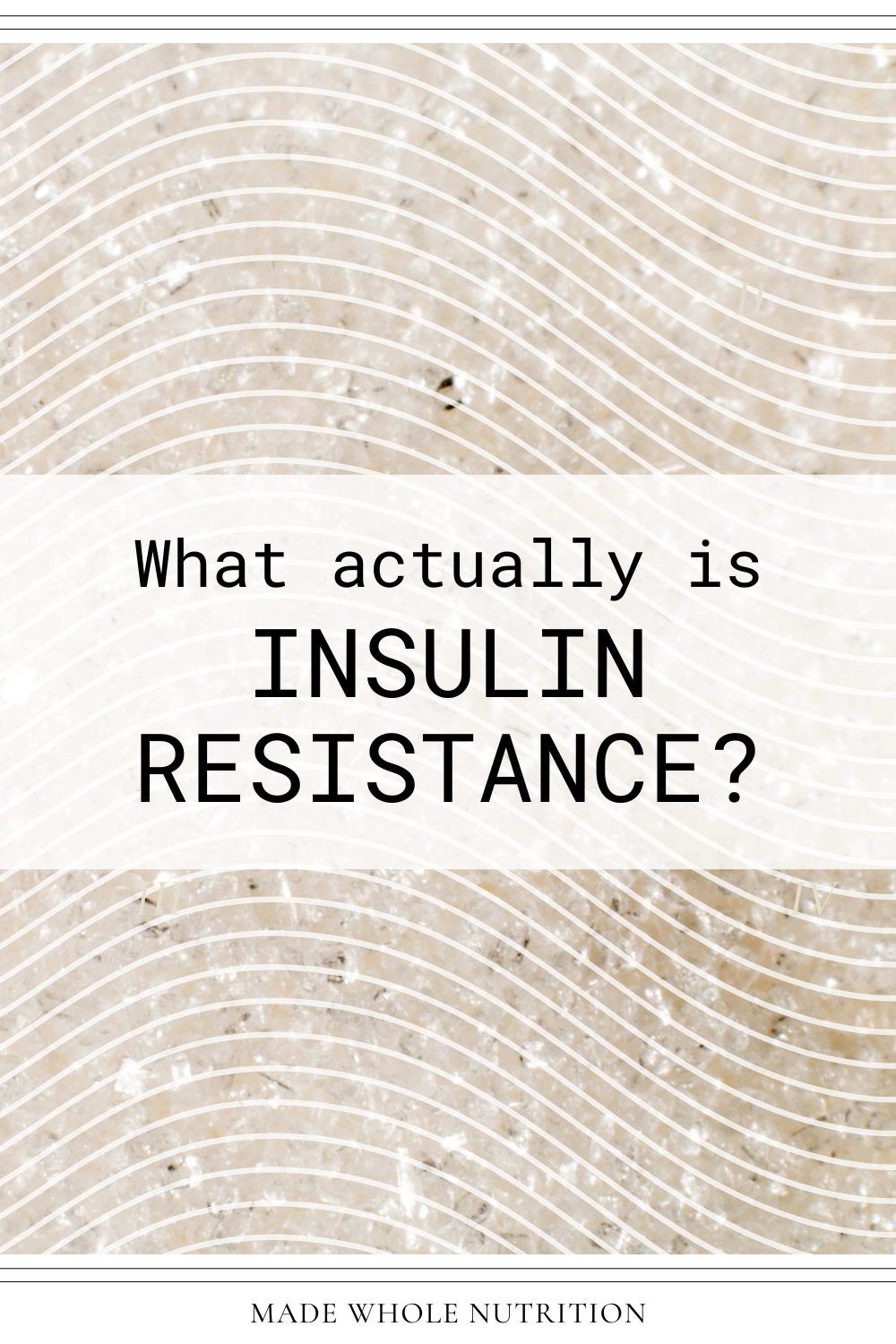What actually is INSULIN RESISTANCE?
STEADY SUPPLY
Your body wants to maintain a constant supply of easily-accessible energy in the form of blood glucose sugar (like a fuel line to an engine).
Just as you do not want to flood your engine, your body is careful to keep blood sugar levels in a narrow optimal range.
"Flooding the system" with high amounts of sugar or refined carbohydrates triggers the pancreas to release a hormone called insulin.
WHAT IS INSULIN?
INsulin tells all your cells to take IN and store excess energy, effectively removing it from the bloodstream.
Insulin also turns off glucose production in the liver and fat burning in cells (there is no need to pull from savings if you have sufficient income).
If your diet is high in sugar and refined carbohydrates, your body is constantly pumping out insulin to keep your blood sugar in the optimal range.
HOW DO YOU BECOME INSULIN RESISTANT?
Over time, your cells can become desensitized to insulin constantly "knocking at the door".
Like the boy who cried wolf, cells stop responding to insulin's signals, a phenomenon called insulin resistance.
This leaves the excess sugar in the bloodstream, where it can damage the blood vessels (and contribute to inflammatory diseases).
SUPPORTING INSULIN SENSITIVITY
Similarly, the signaling pathway that controls production of new glucose in the liver is disrupted, resulting in unnecessary sugar production to add to the already elevated levels in the blood.
This vicious cycle continues unless insulin sensitivity is restored through diet (reduce carb/sugar intake) and lifestyle (movement, sleep, regular meals, etc).
CONSEQUENCES OF IR
high blood glucose - because it is not properly lowered
increased inflammation - from excess blood glucose
high insulin - which promotes energy storage (weight gain)
exhausted pancreas - from high production of insulin & glucagon
imbalanced hormones - that are affected by the insulin imbalance
Are you a health educator that wants to use this content with your clients? Customize the handout template in less time than it would take to even think about hiring a graphic designer.
References
Jones, D. S., Bland, J. S., & Quinn, S. (2010). Textbook of Functional Medicine. Institute for Functional Medicine.
Gaby, A. R. (2017). Nutritional Medicine (2nd ed.). Fritz Perlberg Publishing.
Prediabetes and Insulin Resistance. National Institute of Diabetes and Digestive and Kidney Diseases. National Institutes of Health. Retrieved from https://www.niddk.nih.gov/health-information/diabetes/overview/what-is-diabetes/prediabetes-insulin-resistance




